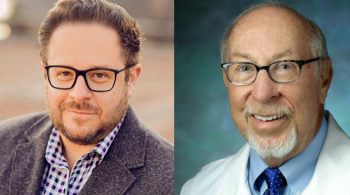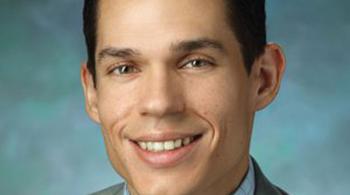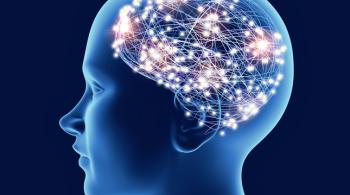Tourette syndrome (TS) is a chronic disorder that involves repetitive involuntary movements or unwanted vocal noises, called tics, that come and go. Tics can range from infrequent and unnoticeable to very frequent, intense, intrusive and even self-injurious.
Although the exact cause of Tourette syndrome is unknown, there is increasing evidence that this complex disorder is likely caused by a combination of genetic and environmental factors.
What is the Tourette Syndrome Center of Excellence?
About one in five children will experience tics at some point. For most of these children, the tics do not require additional treatment and will disappear on their own. However, for those children with tics that severely impact their lives, treatment is needed. Tic disorders are more common in males than in females.
In addition to tics, about 85 percent of Tourette syndrome patients have at least one coexisting neuropsychological condition, the most common being attention deficit hyperactivity disorder (ADHD), obsessive-compulsive disorder (OCD), anxiety, depression, disruptive behaviors and learning difficulties.
The Tourette Syndrome Center of Excellence at Kennedy Krieger Institute and Johns Hopkins Medicine is a collaborative program between Kennedy Krieger Institute and The Johns Hopkins Hospital. This collaboration combines the expertise of both organizations to provide the best outcomes for children and adults with this disorder. We provide medical evaluations and the most recent treatment options designed to improve overall health and quality of life.
The center offers interdisciplinary patient care from the leading experts in the fields of pediatric and adult neurology, psychiatry and neurophysiology. The center has been recognized by the Tourette Association of America as a Center of Excellence. This designation is awarded to those medical institutions that offer the highest level of care, are undertaking groundbreaking research, are leaders in training and education, and provide exceptional community outreach and advocacy for Tourette syndrome and other tic disorders.
Who We Serve:
There is no specific test for diagnosing Tourette syndrome.
To be diagnosed with Tourette syndrome, one must meet the following criteria:
- Age of onset must be before 18 years old.
- Must exhibit multiple motor tics.
- Must have at least one vocal tic.
- Tics must have been present for at least a year.
- Tics are not substance-induced or due to a general medical condition.
The center provides expert diagnostic services and treatment for children, beginning at age 3, and adults who have been diagnosed with a tic disorder or who are suspected of having Tourette syndrome.
Our Team:
Because Tourette syndrome is a neuropsychiatric condition and no two individuals with Tourette syndrome are alike, the team provides comprehensive, interdisciplinary care and individualized assessments and therapeutic approaches tailored to each patient’s personalized needs throughout the patient’s life.
A patient’s individualized care team may include:
- Neurologists specializing in movement disorders
- Neurodevelopment specialists
- Psychiatrists
- Neuropsychologists
- Occupational therapists
- Behavioral therapists
- Neurosurgeons
Additionally, we can facilitate access to a comprehensive team of specialists to assist with any coexisting conditions or specific needs, as required.
Our Treatment Approach:
The first step in treatment is education for the patient and the patient’s family and school or workplace about the diagnosis, potential coexisting issues, and options for therapy.
Although there is no cure for Tourette syndrome, there are treatments to help manage the tics caused by the disorder. These treatments include:
- Home-based and in-person behavioral therapy
- Pharmacological therapy
- Botulinum toxin (Botox)
- Deep brain stimulation (DBS) for adults
Individuals with additional co-occurring conditions may require different treatments based on their symptoms.
Tourette Syndrome Research:
The center’s team also has a long and successful record of clinical and basic science research pertaining to tics and Tourette syndrome, including studies on treatment options, clinical characteristics, comorbidities, underlying functional changes and genetics.




